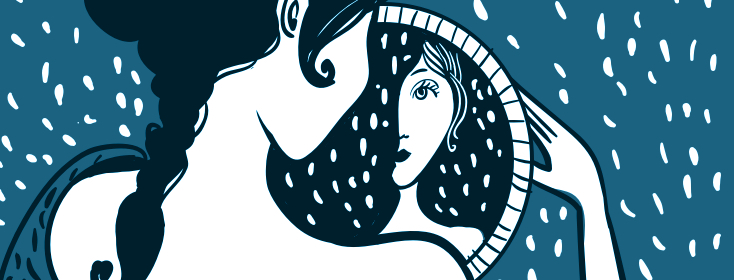Accepting Your New You
Oftentimes, people with diseases, such as IBD, feel an urgency to straighten out their lives, examine their purpose, and confront the reality of death. Ironically, in spite of the physical and emotional pain, many of us express gratitude for this opportunity. The encounter with our own mortality changes our priorities in life, our values, and aspirations. For many, it makes us truly cherish life and the ability to give and receive love. These were words from Jeff Seibert.
Acceptance...a word that means so little to someone going through a crisis.
The cycle of grief is the last thing on someone's mind when they've just been thrown a curve ball. A scary diagnosis, a chronic life-long condition thrown in your lap - having this suddenly become your "norm" if far from a quick turnover. Acceptance takes years, and still, after being diagnosed 13 years, I struggle to accept my disease every single day.
I grieve all the time. Who I used to be, who I could or even would be had this disease not repeatedly stolen the things I loved - things like education, relationships, finances. I think it's fairly normal, when living with any chronic illness, to grieve things, big or small. It's when grief completely takes over your life that it starts to change you.
Knowing that any chronic disease can be lifelong can really find ways of knocking you down when you least expect it. And when it does, that wave of emotion can sometimes be too much. Being proactive with your mental health is more important than you realize when you are first diagnosed.
There are so many things to accept with a chronic illness:
- Acceptance that you were once healthy and now you have been labeled with a diagnosis that will last for as long as you live.
- Acceptance that sometimes you will fail medications and also accepting that it isn't your fault.
- Acceptance that remission is real and it's great.
- Acceptance that things can fall apart at any minute, even if life was as close to perfect as it could be.
- Acceptance that this rollercoaster is real and the rug can be swept out from underneath you when you least expect and deserve it.
Most importantly, accept that there are people who want to help.
Caregivers, other patients and especially your health care team want to help. Know that it's important for every patient - whether mild, moderate or severe - to see a therapist at any point in their lives to see where things are at and what a professional may be able to help with.
Accept that there are resources and accept its okay to use those resources when needed!

Join the conversation